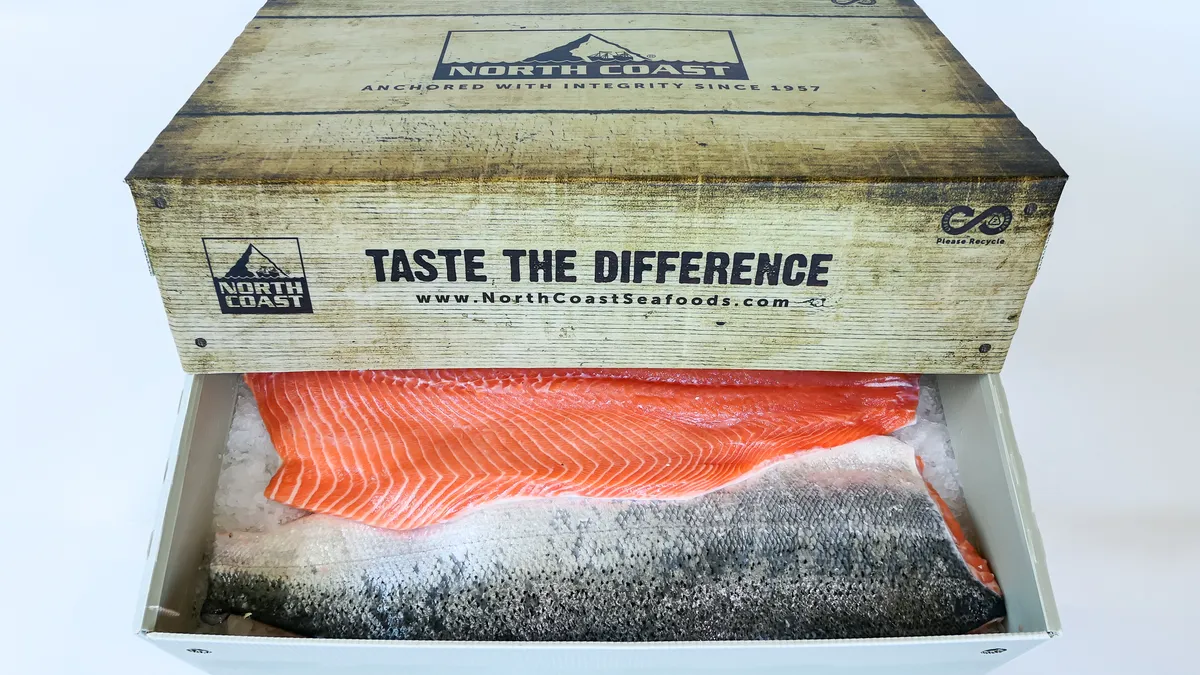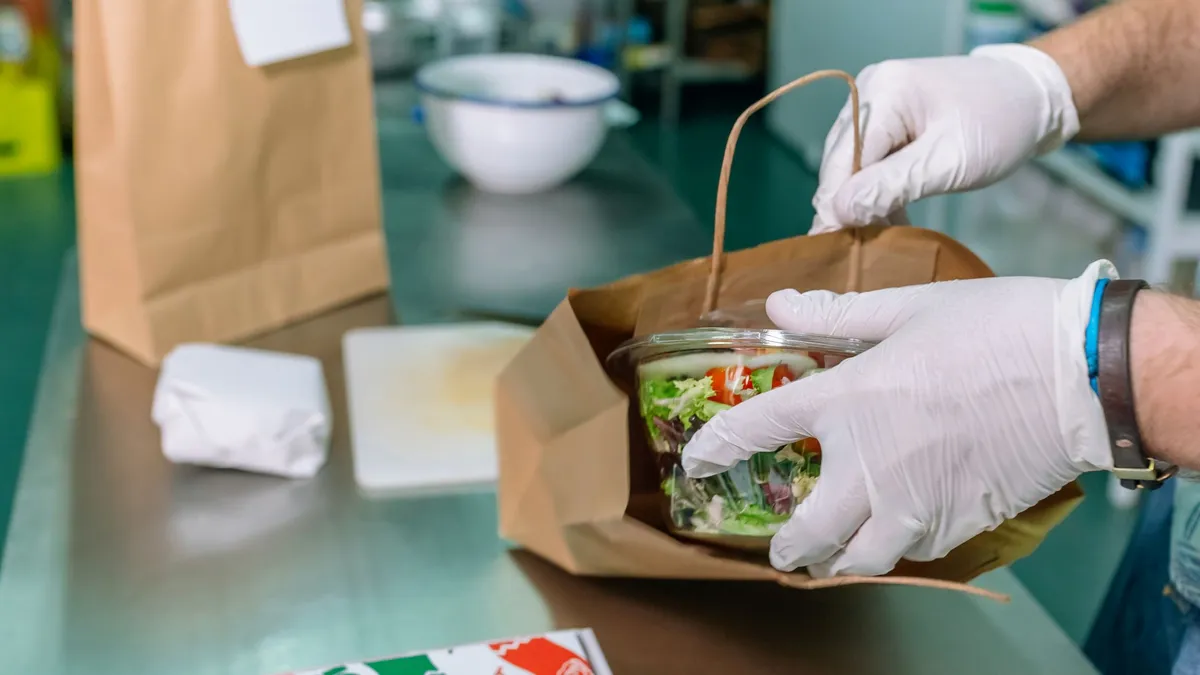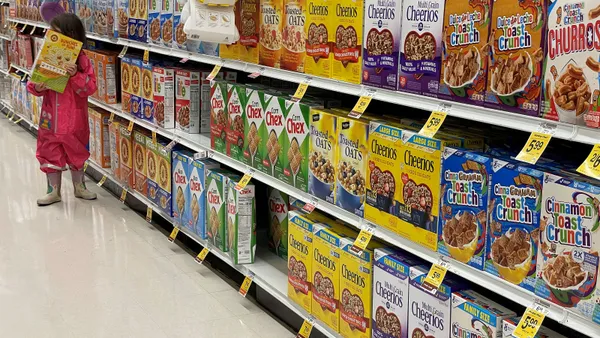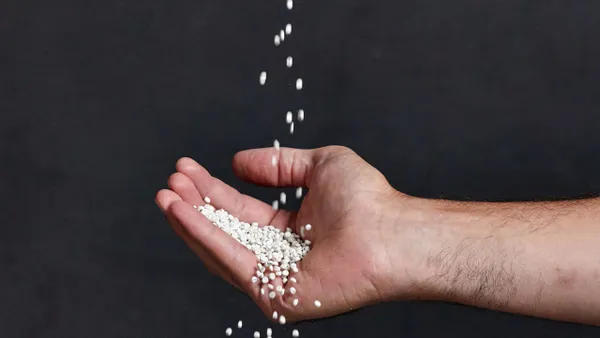Companies constantly innovate with technology and redesign their packaging to get better performance, improve marketability and enhance sustainability. Here’s a look at three recent packaging product launches or redesigns on Packaging Dive’s radar.
Bringing sustainability to the seas
Boston-based North Coast Seafoods announced Tuesday it has collaborated with Australian manufacturer Disruptive Packaging on plastic packaging that it says is entirely reusable and recyclable.
“For the past decade, North Coast Seafoods has been actively searching for high-quality, sustainable, recyclable packaging alternatives to conventional, non-recyclable packaging that are scalable across their expansive operations,” the company said in a press release. “However, being recyclable alone was not sufficient; the packaging solution also had to meet rigorous performance standards for sturdiness, leak-proofing and temperature control.”
North Coast said that Disruptive’s packaging solution, dubbed Unicor, is made of up to 70% calcium carbonate and 20-30% HDPE. It’s durable and “offers excellent cold-chain performance,” according to North Coast. The company said the boxes can be reused within the seafood, retail or food service industries before being recycled wherever users drop HDPE materials for recycling.
North Coast has begun transitioning to the Unicor packaging and will continue the rollout over the coming months.
Mondi cements water-soluble bags in Spain
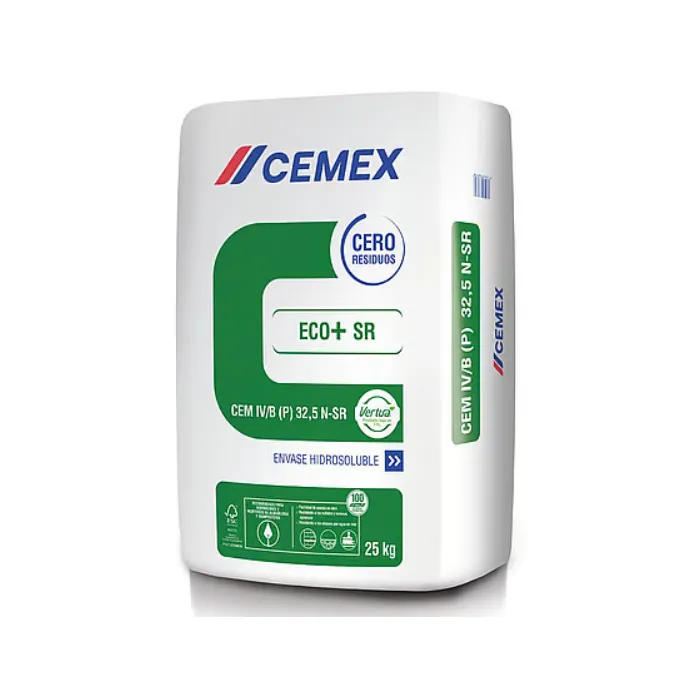
Mondi is launching a water-soluble cement bag in Spain, it announced Tuesday, in part to help a customer comply with local extended producer responsibility for packaging regulations.
Mondi said it began collaborating on the SolmixBag with partner Cemex, a global buildings materials company, in 2021. The single-ply, 100% kraft paper bag carries dry cement, screed and coarse pre-mixes. It’s designed to disintegrate during the cement mixing process by dissolving when it comes into contact with water in the cement mixer and integrating into the cement.
Mondi says that the SolmixBag runs on existing filling machines, while offering comparable strength and shelf life as conventional paper bags.
“Strict legal requirements on the Balearic Islands on landfilling and incineration of waste and EPR have initiated this move, and we aim to use this as best practice example to proactively roll out in different regions and countries,” said Nadal Mateu Piña, Cemex commercial manager for the Balearic Islands (which include Ibiza, Mallorca and Menorca), in a statement.
Aldi goes bananas for fiber packaging
Grocery chain Aldi is trialing the removal of plastic packaging from its bananas in select stores across the U.K. Namely, it’s replacing plastic bags with a paper band.
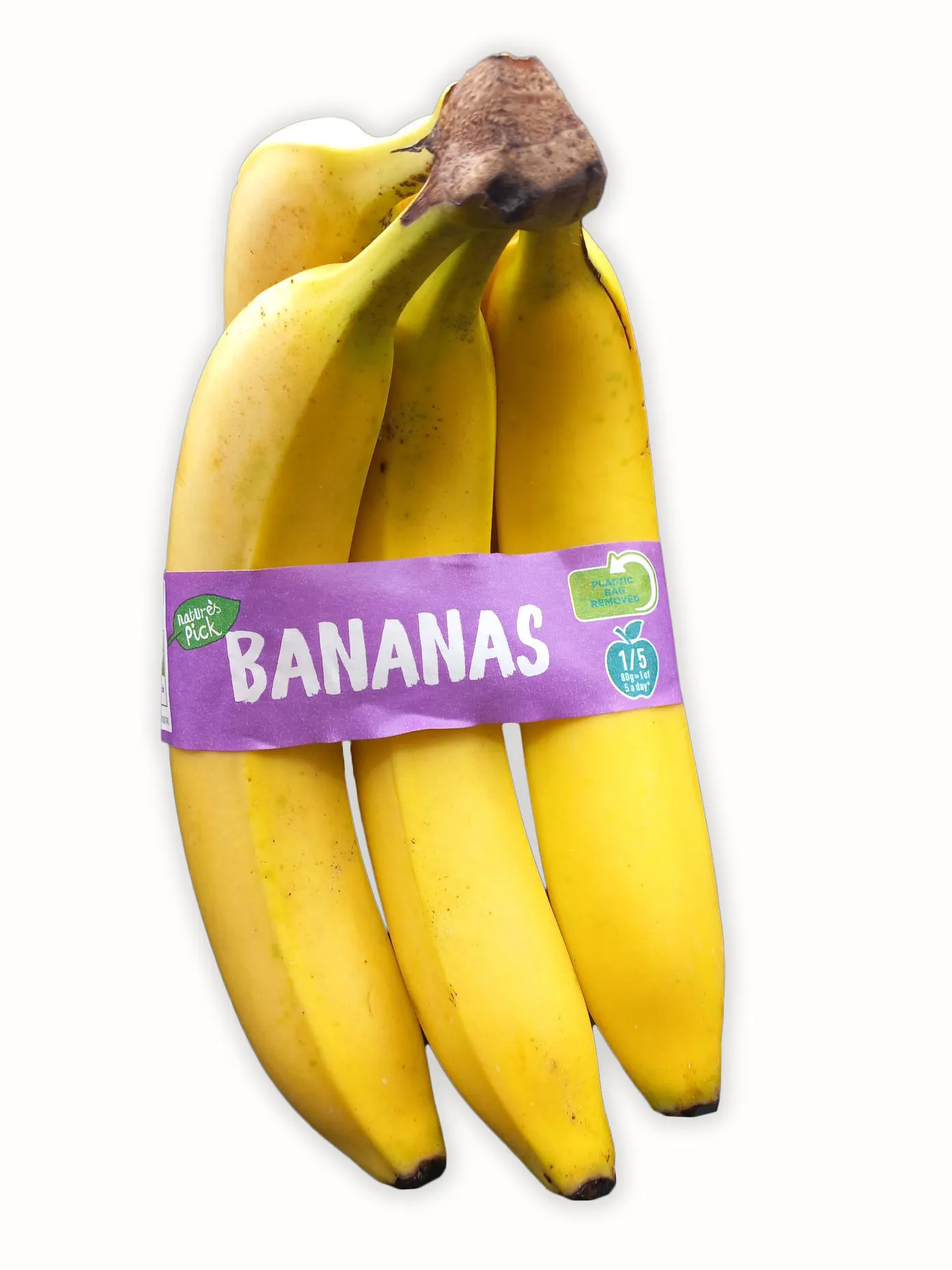
“If successful, the change would help to remove an estimated 234 tonnes of plastic packaging per year,” Aldi wrote.
Aldi continues to try a range of plastic-reduction tactics in the U.K. In its release, the company highlighted efforts to introduce thinner bags for onions and implement a recyclable paper wrap for certain block butter. It recently upped recycled plastic content in its own-brand chips packaging as well as in soft drink and water bottles.
Aldi has been bullish on the transition to fiber packaging in other announcements. This year alone, it eliminated plastic in its toothbrush packaging, replacing it with a cardboard alternative. It also launched own-brand paper wine bottles.



